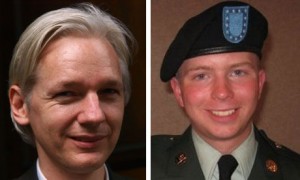
The ultimate impact of WikiLeak’s release of a quarter-million State Department cables is unclear. Responses will range from embarrassment over the frank assessments of world leaders to diplomatic damage over the revelations that U.S. envoys were involved with low-level espionage.
But the political, military and diplomatic impact could be devastating to U.S. efforts to deal with Iran. The documents detail not only that Israel and the United States are gravely concerned about the country’s nascent nuclear program, but also that several states in the Mideast have tacitly or openly encouraged a military strike against Iran’s nuclear facilities. Heads of state or top diplomats from Lebanon, Egypt, Yemen, Qatar, Bahrain and the United Arab Emirates — mostly Sunni-centric societies worried about Shiite-centric Iran — were exposed. As was King Abdullah of Saudi Arabia, who reportedly told his ambassador to tell the United States to “cut off the head of the snake.”
The public outing of private pronouncements may shake Arab resolve, according to Daniel Pipes, director of the Middle East Forum in Philadelphia. “The repercussions for the Saudis and the other Gulf states could be quite severe, not so much from the Iranians but from their own populations,” Pipes told an editorial writer on Monday. “The reason why they were so discreet is they didn’t want to rouse their own populations, who have a widespread sympathy for the Iranians. What we’ve seen time and time again is the most radical voices can appeal to the street in a way the more moderate voices cannot.”
These moderate voices may be even more muted by distrust of American diplomats following the leaks, said Michael Barnett, professor of International Affairs and Political Science at George Washington University. “The beauty of diplomatic engagement is the hope that your conversations remain private,” Barnett said. “And so I do worry to the extent to which it might hamper diplomacy. So if I were a Gulf leader, I would be very upset and very reluctant to trust the Americans whenever they write something down. It can have a chilling effect on diplomacy.”
This chilling effect is bad news for America and the world. More than ever, the cables confirm that an unusually broad cross-section of countries favor a military strike against Iran.
But what starts as a strike rarely ends there. America is bogged down in Iraq and Afghanistan in two indecisive wars that have cost thousands of U.S. lives as well as billions of dollars. Half a world away, North Korea — another nuclear nightmare in the making — is provoking South Korea, and by extension the United States, to the brink of war.
So if ever diplomacy is needed, it’s now. The leaks will make the task even more daunting, which is why the White House was in full damage-control mode Monday.
President Obama’s ability to find a diplomatic solution has already been compromised by partisan politics. Republicans in the U.S. Senate, led by John Kyl, R-Ariz., have delayed any action on the New START pact with Russia. This is unnecessary, as a bipartisan group of former secretaries of state and defense attest to. It makes it less likely that Russia, which has a veto as a permanent member of the United Nations Security Council, will fully cooperate with Obama’s diplomatic efforts to disarm Iran without resorting to war.
Secretary of State Hillary Clinton was right when she said the leak “puts people’s lives in danger, threatens our national security and undermines our efforts to work with other countries to solve shared problems.” Those responsible should be prosecuted to the fullest extent of the law.
But Clinton should have added that politics that start at the water’s edge make difficult diplomacy even harder, which in the case of Iran could literally mean the difference between life and death. ST

Leave a Reply
You must be logged in to post a comment.